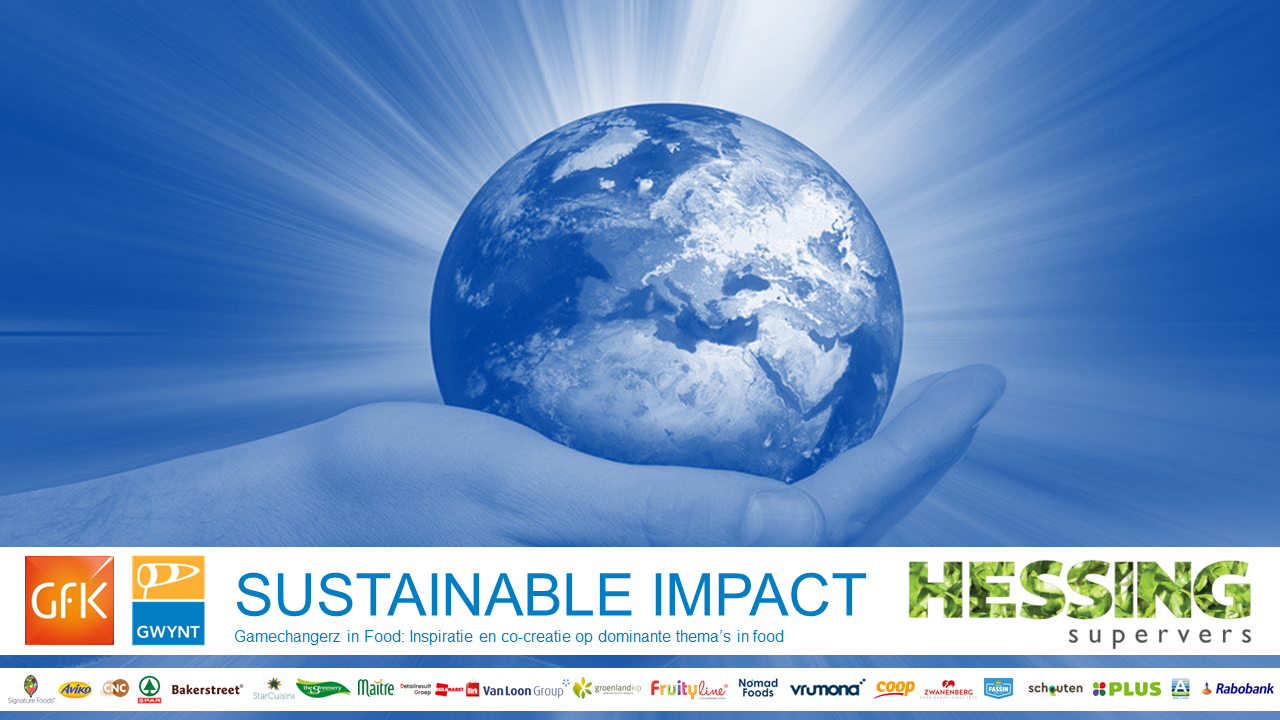10 January 2022
How do food companies make a sustainable impact? That was the question facing us during one of Gwynt’s recent Gamechangerz events with global market researchers GfK and fruit and veg specialist Hessing . We know that many food producers, processors and distributors struggle daily with a multiplicity of smaller sustainability initiatives, which prevents them from making a real impact. The conclusion we came to: If you want to make sustainability part of your strategy, you must first set clear priorities.
Sustainability has been on the international political agenda for 50 years, but public awareness has increased rapidly since 2019, thanks in large part to the EAT-Lancet Commission on Food, Planet, Health, the Paris Climate Accord and the European Green Deal. That has led to a consensus that the food industry must contribute significantly to sustainability. As the Green Deal sets out, economic growth can be achieved without the depletion of raw materials: European food security can only be achieved with smaller environmental and climate footprints and a more resilient food system.
This new reality requires food companies to make some hard choices. More and more are using Environmental, Social & Governance (ESG) analysis to measure their sustainability. At Gwynt, we wanted to know which subjects within this framework are the main focal points, so we researched the ESG reports of 16 global food companies and discovered that the highest priorities are CO2-reduction, gender equality and water intake reduction.
These sustainability issues may be high on the agenda. However, many executives and senior managers are still looking for ways to implement them. Charting a new course is difficult in practice, especially when pressure from consumers, NGOs, governments and supply chain partners changes on a daily basis. In addition, questions remain about the economic feasibility and measurability of many sustainability initiatives.
It’s no wonder that food companies around the world are struggling with this issue. Sustainability in the food chain is both “new” and wide-ranging. Thus, stakeholders have different wants, and methods to identify the right KPIs and their measurements are still in their infancy. What’s more, cooperation in the supply chain remains challenging.
In summary, there is a lot of work to be done before your company can communicate its sustainability objectives to the outside world. The very first step is to develop a sustainable roadmap that is based on the right ESG objectives and the impact on stakeholders. This can then be translated into a widely supported and pragmatic action plan that is tailor-made just for you.
Recognize this sustainability challenge? Fear not. Simply contact Gwynt and let us help you work out your next step.

